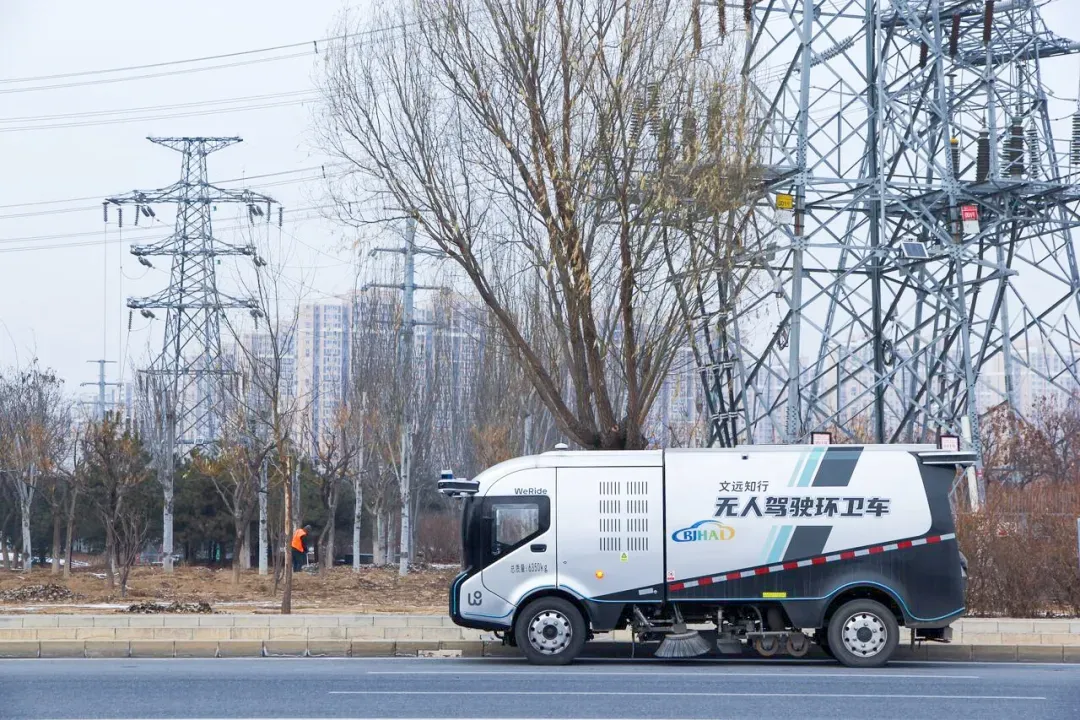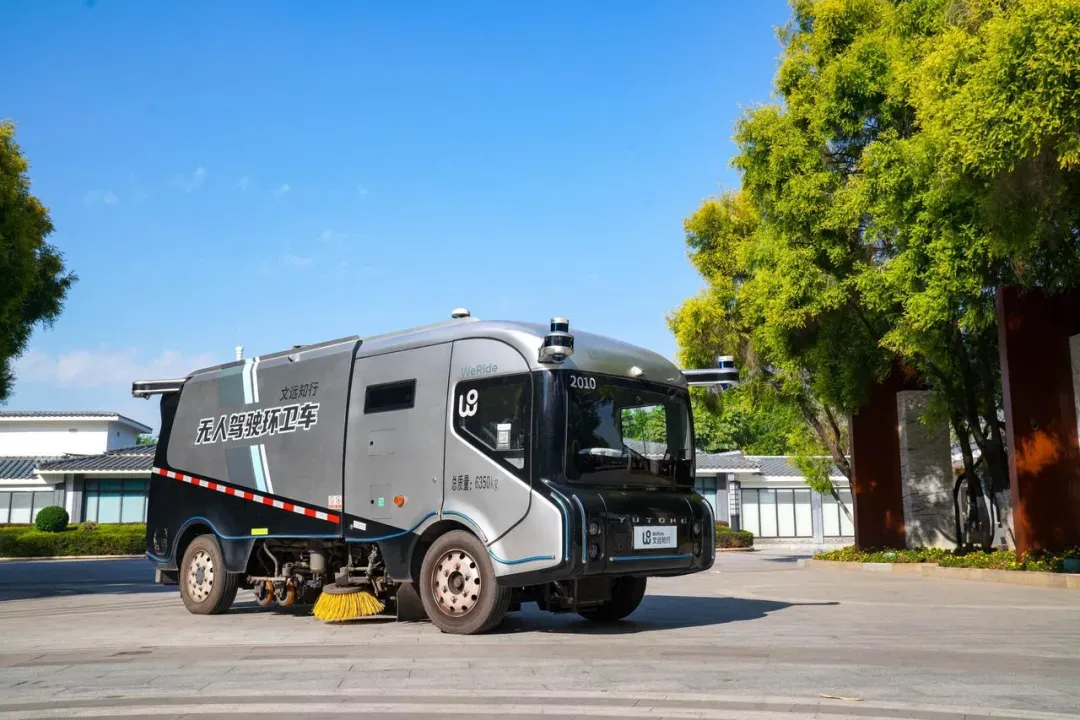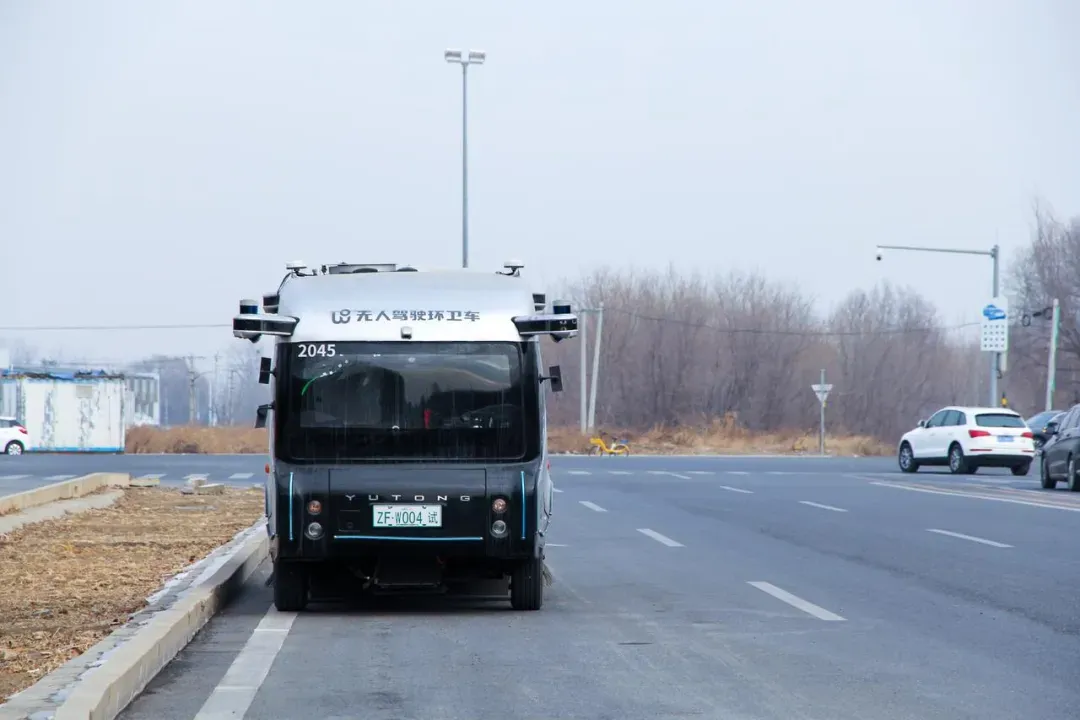Without Stopping During the Night, WeRide Launched the First L4-level Unmanned Sanitation Commercial Project in Beijing
Recently, WeRide's autonomous sanitation vehicle (referred to as "WeRide Robosweeper") officially commenced operations in the Beijing Economic and Technological Development Zone. It conducts in-depth sanitation cleaning services, covering key road sections in the core area, east area, and south area of the development zone. This marks Beijing's first commercialized sanitation project that integrates the "autonomous driving + new energy" mechanized operation mode with the traditional manual operation mode. It is also the first unmanned sanitation service in Beijing that operates day and night. The operational hours include daytime from 9:00 to 17:00 and nighttime from 0:00 to 7:00, avoiding daytime traffic peaks to enhance operational efficiency and complementing existing traditional sanitation operations.
 (WeRide Robosweeper integrates unmanned cleaning operations with traditional sanitation work, jointly contributing to urban sanitation management.)
(WeRide Robosweeper integrates unmanned cleaning operations with traditional sanitation work, jointly contributing to urban sanitation management.)
Since being granted permission to conduct road tests for autonomous sanitation vehicles in Beijing in July 2023, to obtain the permit for pure unmanned road tests of autonomous sanitation vehicles in October of the same year, WeRide has become the first and only company authorized to carry out unmanned cleaning operations in Beijing. Finally achieving commercial implementation, officially integrating unmanned cleaning operations into the city's normalized operational service system, WeRide's progress in the sanitation field ranks at the forefront of the industry.
Officially launched in 2022, WeRide Robosweeper is Chinese first mass-produced L4-level autonomous driving sanitation vehicle. It closely aligns with the current situation of the sanitation industry undergoing intelligent transformation and upgrading, addressing pain points such as an aging labor force, high work safety risks, and high carbon emissions from equipment. Utilizing pure electric drive, self-developed L4-level autonomous driving software and hardware solutions, an exclusive cloud-based platform, and other advanced technologies, it provides various urban sanitation services, including road sweeping, dust suppression through watering, spraying disinfectants, and flushing. This can effectively improve operational efficiency, reduce operational risks for sanitation workers, and decrease exhaust emissions.
 (WeRide Robosweeper features an avant-garde design and can provide multiple unmanned cleaning services in the city.)
(WeRide Robosweeper features an avant-garde design and can provide multiple unmanned cleaning services in the city.)
Since September 2020, with the core in the Beijing Economic and Technological Development Zone, Beijing has initiated the construction of the world's first comprehensive vehicle-road-cloud integrated high-level autonomous driving demonstration area. After three years of development, it has achieved full coverage of intelligent connected roads spanning 160 square kilometers and a dedicated smart city network. In July 2023, the "Beijing Intelligent Connected Vehicle Policy Pilot Zone Regulations for the Management of Intelligent Connected Sweeper Vehicles (Road Testing and Demonstration Applications)" (trial) was released. This is the first normative document in the country specifically addressing road testing and demonstration applications for intelligent connected sweepers on urban roads. It paves the way for the rapid integration of WeRide Robosweeper.
 (WeRide Robosweeper adopts pure electric drive with no emission.)
(WeRide Robosweeper adopts pure electric drive with no emission.)
As a crucial component of Beijing's Economic and Technological Development Zone's technology-empowered comprehensive sanitation efforts, the deployment of WeRide Robosweeper will not only contribute to the improvement of the urban environment in Beijing but also explore new models for urban sanitation management. Currently, in addition to Beijing, WeRide Robosweeper has been successfully introduced in several key cities such as Guangzhou, Shenzhen, Dalian, etc., emerging as a significant force driving the local transformation and upgrade of traditional sanitation industries.
